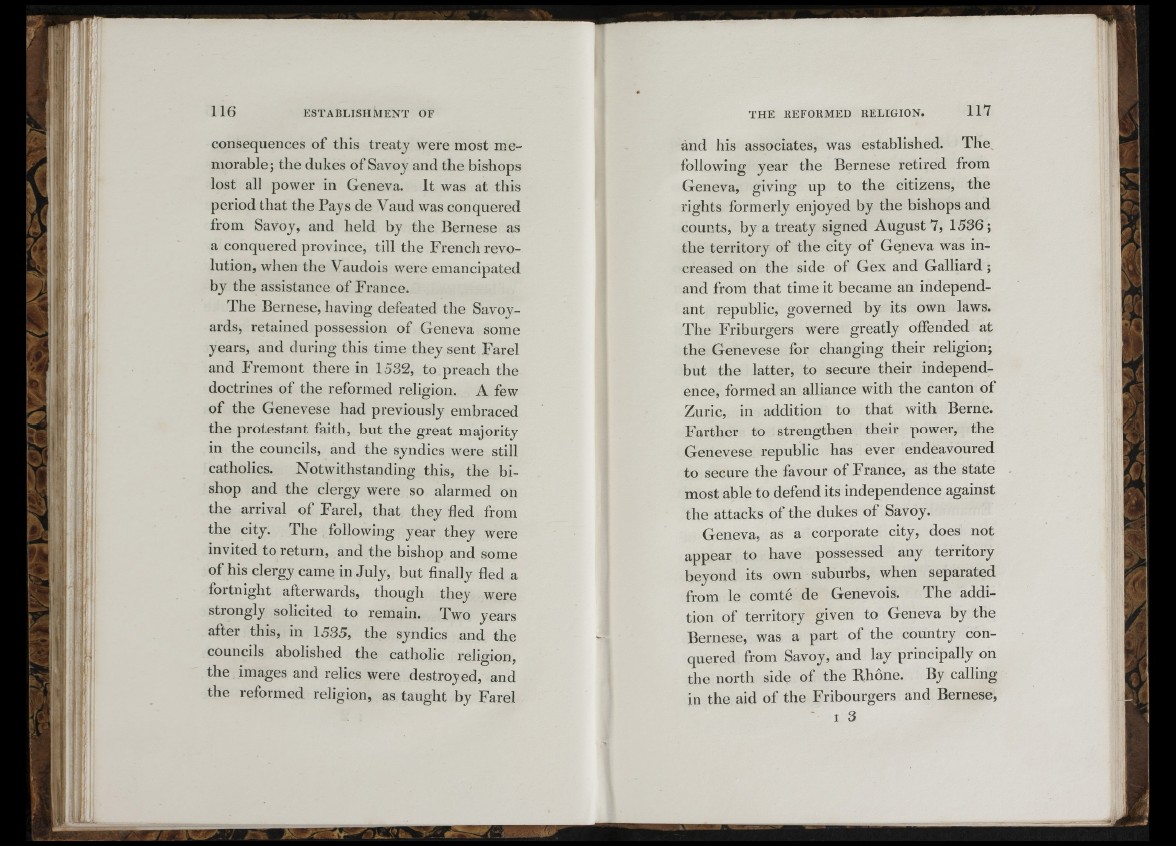
t
i
*1:
116 E S T A B L I S H M E N T O F
consequences of this treaty were most memorable;
the dukes of Savoy and the bishops
lost all power in Geneva. It was at this
period that the Pays de Vaud was conquered
from Savoy, and held by the Bernese as
a conquered province, till the French revolution,
when the Vaudois were emancipated
by the assistance of France.
The Bernese, having defeated the Savoyards,
retained possession of Geneva some
years, and during this time they sent Farel
and Fremont there in 1532, to preach the
doctrines of the reformed religion. A few
o f the Genevese had previously embraced
the protestant faith, but the great majority
in the councils, and the syndics were still
catholics. Notwithstanding this, the bishop
and the clergy were so alarmed on
the arrival of Farel, that they fled from
the city. The following year they were
invited to return, and the bishop and some
of his clergy came in July, but finally fled a
fortnight afterwards, though they were
strongly solicited to remain. Two years
after this, in 1535, the syndics and the
councils abolished the catholic religion,
the images and relics were destroyed, and
the reformed religion, as taught by Farel
T H E I I E F O I IM E D R E L IG IO N . 117
and his associates, was established. The
following year the Bernese retired from
Geneva, giving up to the citizens, the
rights formerly enjoyed by the bishops and
counts, by a treaty signed August 7, 1536 ;
the territory of the city of Geneva was increased
on the side of Gex and Galliard ;
and from that time it became an independant
republic, governed by its own laws.
The Friburgers were greatly offended at
the Genevese for changing their religion;
but the latter, to secure their independence,
formed an alliance with the canton of
Zuric, in addition to that with Berne.
Farther to strengthen their power, the
Genevese republic has ever endeavoured
to secure the favour of France, as the state
most able to defend its independence against
the attacks of the dukes of Savoy.
Geneva, as a corporate city, does not
appear to have possessed any territory
beyond its own suburbs, when separated
from le comté de Genevois. The addition
of territory given to Geneva by the
Bernese, was a part of the country conquered
from Savoy, and lay principally on
the north side of the Bhone. By calling
in the aid of the Fribourgers and Bernese,
I 3 ■